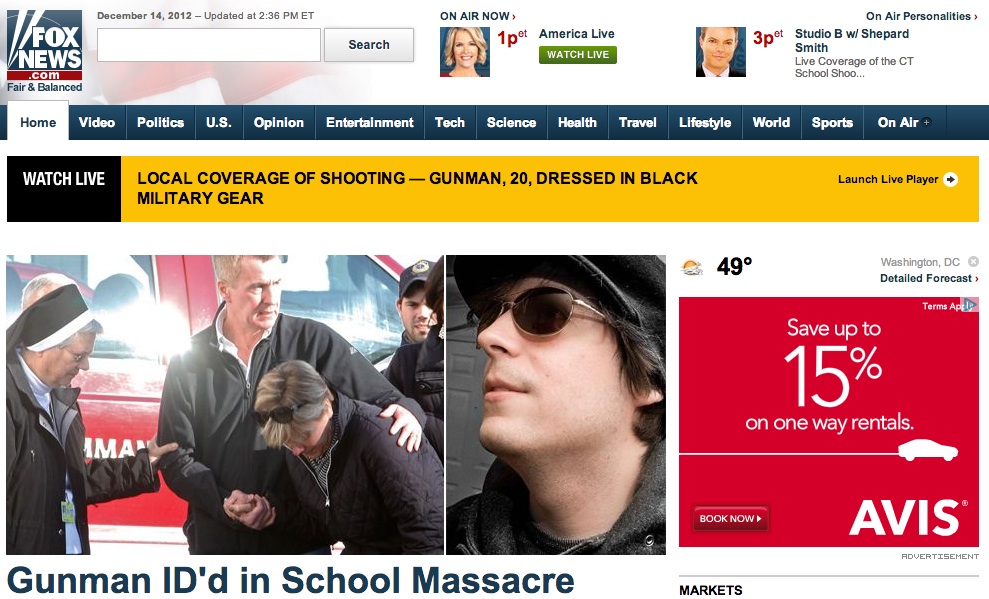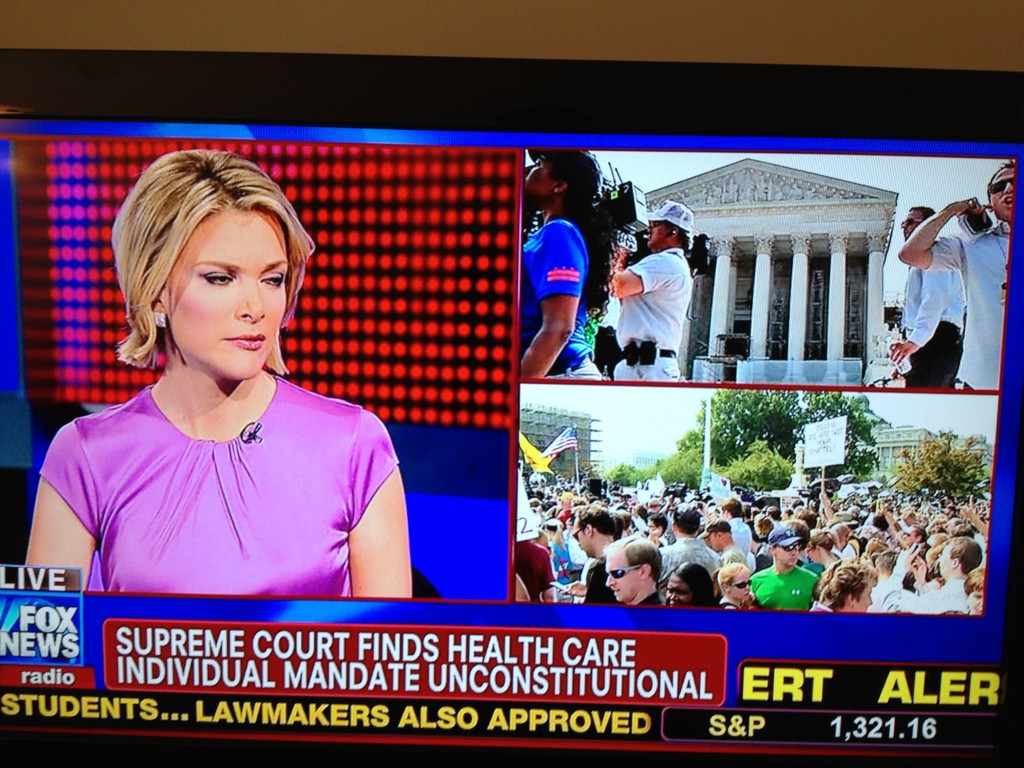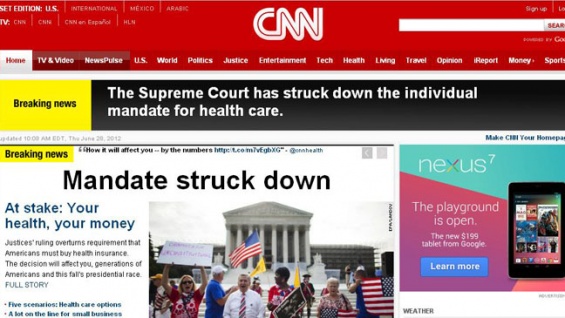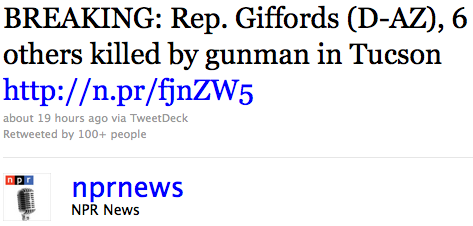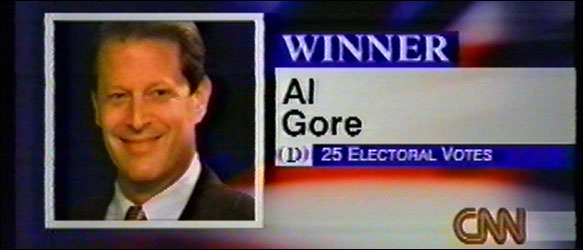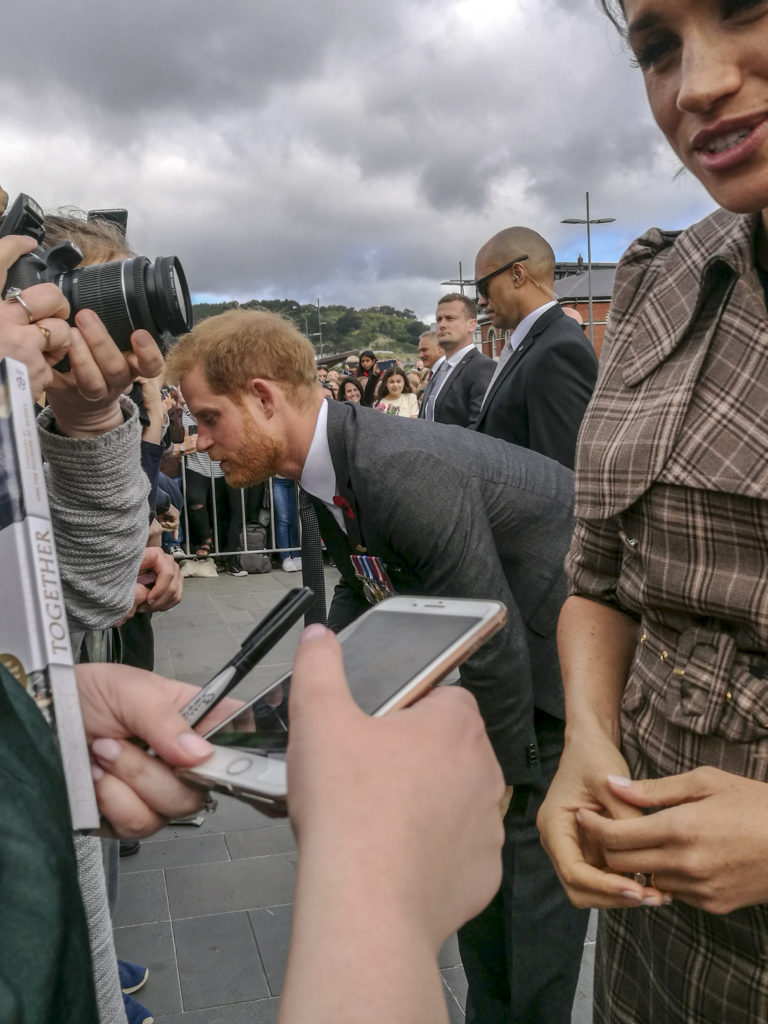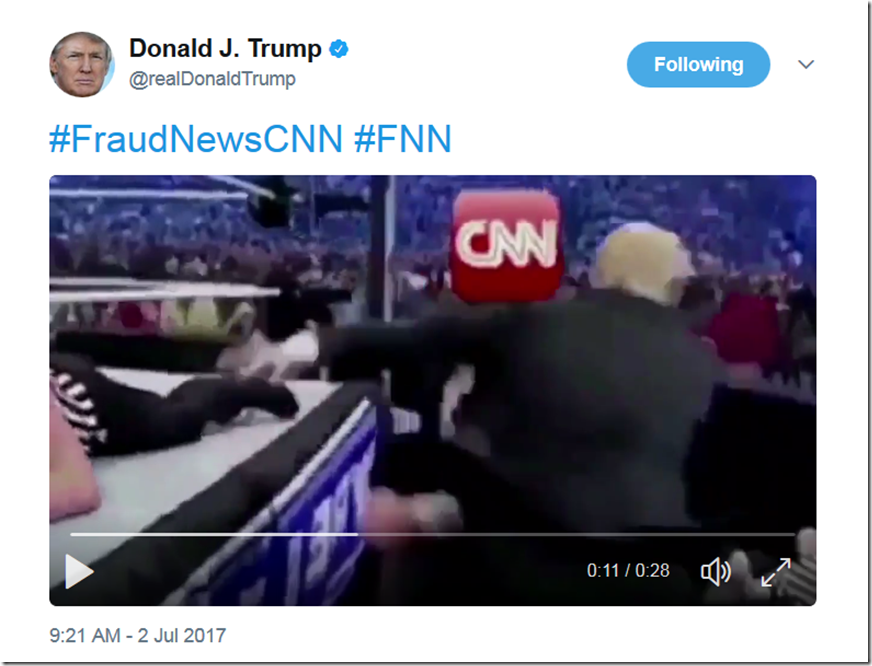A Brief And Incomplete History of Media Mistakes
CNN is yet again being criticized for misreporting a major news story.
This time, the network claimed that a suspect had been arrested in connection with the Boston Marathon bombing. After the FBI issued a stern rebuke, the occasional news network backed away from the story. (Others got the story wrong as well, but CNN’s mistakes were made with particular panache.)
BuzzFeed did a wonderful job of capturing CNN’s awful hour of reporting here.
Below are a few other high-profile examples of mainstream media outlets getting a major story wrong.
In December 2012, after the horrific shootings in Newtown, Connecticut, many news outlets wrongly identified the shooter as Adam Lanza’s brother, Ryan. Lanza’s mother was also widely reported to have been a teacher at Sandy Hook Elementary School; she wasn’t. Many news outlets also misreported the type of gun used in the attack.
In June 2012, both CNN and the Fox News Channel misreported the Supreme Court’s decision regarding President Obama’s health care law, as the screenshots below show.
In 2011, many news organizations misreported that Rep. Gabrielle Giffords had died. According to Poynter.org:
“Organizations such as NPR, Reuters, Fox News, CBS, CNN and the Huffington Post sent out tweets or distributed other reports declaring Giffords dead. The New York Times’ website briefly reported her dead as well.”
In 2004, The New York Post splashed John Kerry’s Vice Presidential choice on its front page: “Dem picks (Dick) Gephardt,” blared the headline. Except he didn’t. John Edwards got the nod.
In 2000, CNN reported that Al Gore had won Florida.
In 1981, President Reagan’s spokesperson, James Brady, was declared dead by news networks after being hit by one of John Hinkley’s bullets. He’s still alive.
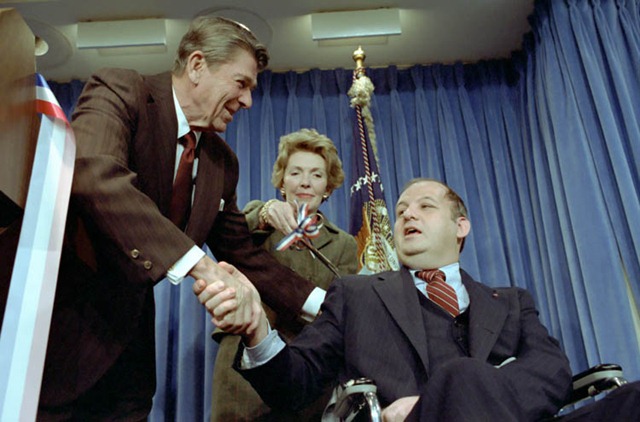
Remember President Thomas E. Dewey? In 1948, The Chicago Tribune named him the winner of the presidential election. He wasn’t. Harry Truman was elected to a full term.
These are just a few examples – the list of incorrect media stories could include hundreds of others.
I think it’s reasonable to conclude that breaking news coverage is broken. I no longer trust the first wave of reporting on the cable news channels. In the rush to be first, they too often blow the story, or at least critical parts of the story.
We should be skeptical when reporters rely upon the wording “sources said.” Yes, anonymous sources are often reliable. But as we’ve seen from these high-profile examples, they’re too often wrong. And we, as viewers, have no way of determining the credibility of those anonymous sources. That has always been so, but in light of these major and recurring mistakes, it’s more so now than ever before.
From now on, I’m inclined to wait until law enforcement officials confirm stories publicly before fully believing them. You probably should too.
What do you think? Please leave your thoughts in the comments section below.
